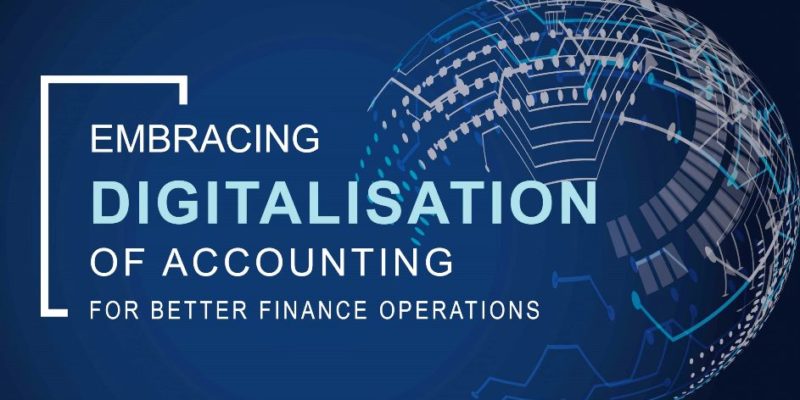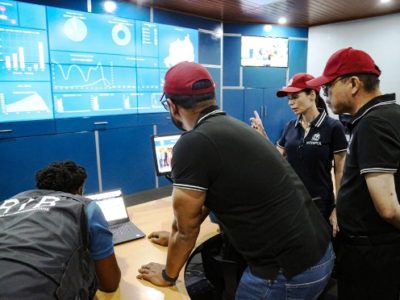By Ijeoma Anadozie, Associate Director – Nigeria, at the Association of International Certified Professional Accountants, representing AICPA & CIMA
More than five years ago, The Chartered Institute of Management Accountants® (CIMA®) joined with the American Institute of CPAs® (AICPA®), forming the Association of International Certified Professional Accountants®. In the time since, the Association has sought to drive a dynamic accounting profession worldwide.
Focusing on remaining dynamic is central to our mission of helping you evolve your competencies and continue to generate value in businesses across the planet.
RELATED: How to maximise your accounting platform investment
Today’s world is fuelled by change, which is only set to continue. In fact, the pace of transformation is accelerating.
As a business leader or employee aiming to thrive throughout disruption, you too must prepare for the future. Here are four ways we recommend you do so.
Move forward with confidence
Despite the stereotype, management accountants aren’t restricted to numbers and spreadsheets. CIMA members are well versed in the digital world and advise business leaders in areas including cryptocurrency, cybersecurity risk assessments, internal control and data science.
Although several core proficiencies, such as cost accounting and tax principles, remain in each of the four levels of our syllabus, the CGMA Competency Framework and our syllabus have been revised to help you meet the demands of accelerating technological innovation.
Obtaining the CGMA® designation and becoming a CIMA member prepares you to be an influential and trusted adviser in companies worldwide.
As digitisation transforms business models, the need to learn never stops. Keeping in mind the dramatic changes ushered in by the pandemic, the dangers of remaining rooted in old ways have become crystal clear.
As technological advance continues to become a reality, and the influence of digitisation widens, we must all adapt to drive value and growth. To this end, CIMA members live by the mantra ‘learn, unlearn, relearn’, a motto that keeps us agile and at the forefront of change.
Address skill gaps
A survey conducted by global management consulting firm McKinsey & Co found that the COVID-19 pandemic accelerated product digital transformation by as much as seven years in mere months. However, gaps in essential skills may prevent many businesses from getting back on their feet.
Rapid change can jeopardise business operations. As older skillsets and business models become increasingly incompatible with contemporary demands, companies whose employees lack adequate digital skillsets risk lagging behind the curve and being overtaken by the competition.
Our members improve on in-demand knowledge areas and stay abreast of change by pursuing continuing professional development, making them valuable assets to organisations laying out the groundwork for a digital future.
Listen to the numbers
Data doesn’t lie if collected and interpreted correctly. Listening to the numbers and taking note of trends can help you guide accurate decision-making with less bias.
Utilising both internal and external data could help your organisation target areas for improvement and find ways to implement needed training. If you can anticipate hurdles on the horizon, you can adequately prepare your workforce and adjust your business model.
Invest in the next generation
Organisations can also drive value creation and become future ready by focusing on recruiting and training young people.
Younger employees intimately understand their generation’s consumer behaviours. Their knowledge could inform your digital strategy, helping you tap into new markets or take advantage of existing opportunities.
Organisations recruiting and developing digital native talent can develop sustainable, future-proof business models.
With younger and digital native employees poised to become the next generation of leadership, and older employees enhancing their digital skillsets via training, companies can develop the human capital needed to succeed in the future of finance.
Delaying your investment in your future by postponing digital skill training, for example, can be a false economy. By deferring your preparation, you may save resources in the short term but encounter higher costs and risk in the future.
Maintaining growth in our global economy requires swift action. Proactively implementing future-proof strategies can create well-paying jobs, enhance commerce and develop the organisational resilience necessary to succeed in the modern business world.
As the Association of International Certified Professional Accountants, representing AICPA & CIMA, we are dedicated to advancing the global accounting and finance profession through our work on behalf of 689,000 AICPA and CIMA members, students and engaged professionals in 196 countries and territories. Learn more about CIMA and the benefits of achieving the Chartered Global Management Accountant (CGMA) designation.
COVER IMAGE:Cheng & Co































